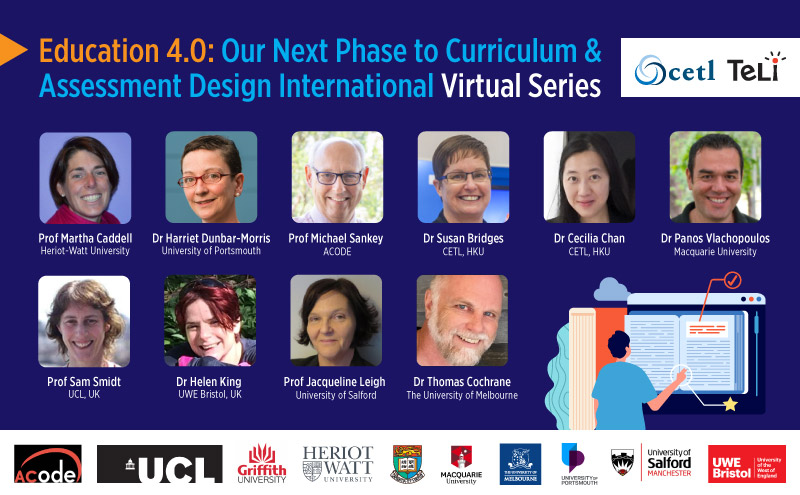
Organisers: Centre for the Enhancement of Teaching and Learning and TeLi, The University of Hong Kong
Co-hosts: Australasian Council on Open Distance and eLearning (ACODE), Heriot-Watt University, University of Melbourne, Australia, University of Portsmouth, University of the West of England (UWE Bristol), UK
Abstract
In the last few months, the terms flipped, blended, flexible, distance, synchronous, asynchronous, virtual and mobile learning have all become very relevant in our teaching and learning. And this is happening globally. For better or worse, we are here, so what are we going to do next?
This series brings together international experts from Australia and the UK, we will hear their challenges, their reflection, their ideas to bring this experience holistically for our students in the future. Join us and share with us at this exciting international series!
For information, please contact:
Mr. Thomas Lau , CETL
Phone: 3917 4807; Email: kanclau@hku.hk
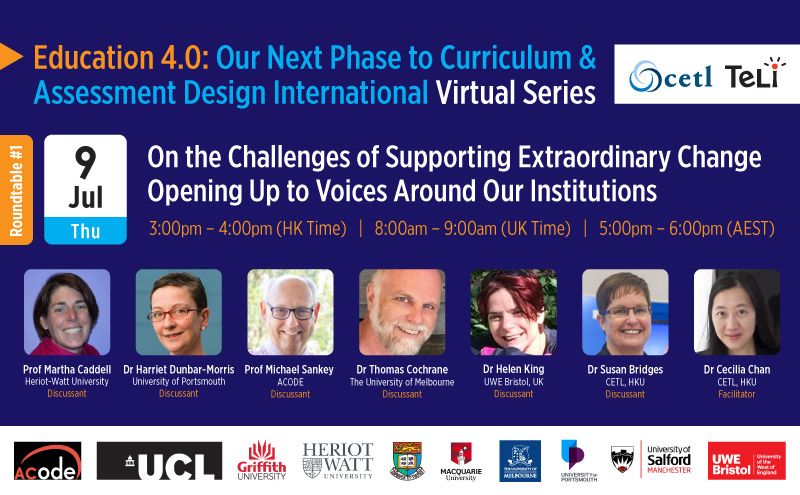
Date & Time : 9 July 2020 (Thu)
3:00pm – 4:00pm (HK Time)
8:00am – 9:00am (UK Time)
5:00pm – 6:00pm (AEST)
Venue : Conducted via Zoom
Discussants :
Prof. Martha Caddell, Director, Learning and Teaching Academy, Heriot-Watt University, Edinburgh;
Dr. Harriet Dunbar-Morris, Dean of Learning and Teaching; Reader in Higher Education, University of Portsmouth;
Prof. Michael Sankey, Director of Learning Transformations, Griffith University, Australia. President of the Australasian Council on Open, Distance and e-Learning (ACODE);
Dr. Thomas Cochrane, Associate Professor (Technology Enhanced Learning), Melbourne Centre for the Study of Higher Education, The University of Melbourne, Australia;
Dr. Helen King , Deputy Director (Academic Development), Academic Practice Directorate, University of the West of England (UWE Bristol), UK;
Dr. Susan Bridges, Director, Centre for the Enhancement of Teaching and Learning, University of Hong Kong
Facilitator : Dr. Cecilia Chan, Centre for the Enhancement of Teaching and Learning, University of Hong Kong
Abstract
In this roundtable discussion, we will hear from colleagues in the UK, Australia and Hong Kong on the current challenges and plans for next semester, allowing the participants to share their ideas. Please join us.
About the Discussants
|
Dr. Harriet Dunbar-Morris PFHEA |
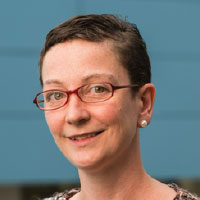 |
|
Professor Sankey is the Director of Learning Transformations at Griffith University in Brisbane, Australia. He specialises in technology enhanced learning, staff and leadership development, curriculum renewal, online pedagogies, multimodal design, digital, visual and multiliteracies. He has worked in Higher Education for 30+ years and is particularly interested in how constructively aligned and aesthetically enhanced learning environments can better transmit concepts to students, particularly those from diverse backgrounds. In addition to this role, Michael is the President of the Australasian Council on Open, Distance and e-Learning (ACODE) and is the Director of the ACODE Learning Technologies Leadership Institute. This is a major initiative of ACODE that is run bi-yearly for those aspiring to become leaders in the area of technology enhanced learning. |
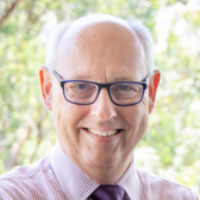 |
|
Dr. Thomas Cochrane is Associate Professor, Technology Enhanced Learning in Higher Education, in the Melbourne Centre for the Study of Higher Education. Thomas has expertise in qualitative research in technology-enhanced learning, with a focus upon action research, and design based research methodologies. His specialisations include mobile learning, designing mixed reality learning environments, heutagogy (self-regulated learning), communities of practice, and the scholarship of technology enhanced learning. His research portfolio includes over 50 peer reviewed journal articles, 32 book chapters, and over 150 conference proceedings. |
 |
|
Dr. Helen King’s career in educational development spans over two decades and has included leading roles in UK-wide higher education (HE) learning and teaching projects and organisations, as an independent consultant collaborating with colleagues in the UK, USA and Australia, and institutional roles (currently Deputy Director (Academic Development) at the University of the West of England, Bristol, UK). She has interests across a range of HE themes but her particular passion is in supporting professional development. Her current research explores the characteristics of expertise in HE teachers. She holds a Senior Fellowship of the Staff & Educational Development Association (SFSEDA), a National Teaching Fellowship (NTF) and is a Principal Fellow of the Higher Education Academy (PFHEA). |
 |
|
Dr. Susan Bridges is the Director at the Centre for the Enhancement of Teaching and Learning and an Associate Professor with the Faculty of Education, Honorary Associate Professor with BIHMSE at the LKS Faculty of Medicine at The University of Hong Kong (HKU) and Adjunct Professor at the Australian Catholic University. She is an award-winning educator (HKU 2012; QS Wharton 2016) and leads curriculum re-design and staff development projects in higher education. She chaired the Faculty of Education’s Task Force on e-learning, devised the Faculty’s first e-learning policy, initiated and led the Faculty’s award winning E-learning Team. She chaired the curriculum reform of the UGC-funded Postgraduate Diploma in Education (PGDE) and led the successful launch of a cross-faculty Masters of Education specialism in ‘Health Professions Education’ with the LKS Faculty of Medicine. In 2016, Dr. Bridges joined the U21 Education Innovation cluster Steering Group to further support innovation across the network, including internationalization of the curriculum. She collaborates with researchers in the US, Finland, Japan and Australia to explore the ‘how’ of effective pedagogy and clinical communication through interactional and ethnographic approaches. She is the principal investigator of 4 HKSAR General Research Fund (GRF) grants and in 2020 was awarded a HKU Theme-based Research seed grant to lead a new research initiative with the Faculty of Science. In 2020, she was elected Chair, Problem-based Education Special Interest Group for the American Educational Research Association. Her forthcoming co-edited book with R. Imafuku on “Interactional Research into Problem-based Learning” is with Purdue University Press. |
 |
|
Dr. Cecilia Chan is an Associate Professor in the Centre for the Enhancement of Teaching and Learning and Faculty of Education at The University of Hong Kong (HKU). Cecilia has a dual cultural background; she was born in Hong Kong but grew up in Ireland. In addition to her dual cultural background, she also has a dual discipline expertise in engineering and education; she has been playing a key role in enhancing engineering, and science education as well as teaching and learning in higher education. Her combined expertise in these fields and multi-cultural experience enabled her to lead and conduct research on topics such as assessment and feedback, experiential learning, technology enhanced learning and the development and assessment of 21st century skills spanning in education from east to west. Dr. Chan has developed a framework to assist teachers to integrate competency into the university curriculum and is also researching in approaches to assess these competencies. Her work is being recognized in many parts of Asia. She has been invited as keynote speaker and panel speaker to many international educational conferences in Korea, Singapore, United States, Estonia, United Kingdom, Macau, Thailand, Malaysia, UAE, India and Switzerland on teaching, learning and the assessment of generic competency including the Harvard Graduate School of Education. Cecilia holds a PhD in Engineering from Trinity College, a postgraduate diploma and a MA in Higher Education. She also held a Fellowship from King’s College London. Dr. Chan is involved in over 40 research/projects worldwide and was awarded the University of Hong Kong’s Young Outstanding Researcher Award. She is the Chair for the Engineering Education Community in Hong Kong and the Founding President for the ASIA Engineering Education Network (AsiaSEE). More information can be found in the Teaching and Learning Enhancement and Research Group (TLERG) website: https://tlerg.cetl.hku.hk/ |
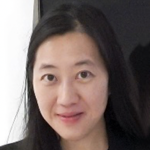 |
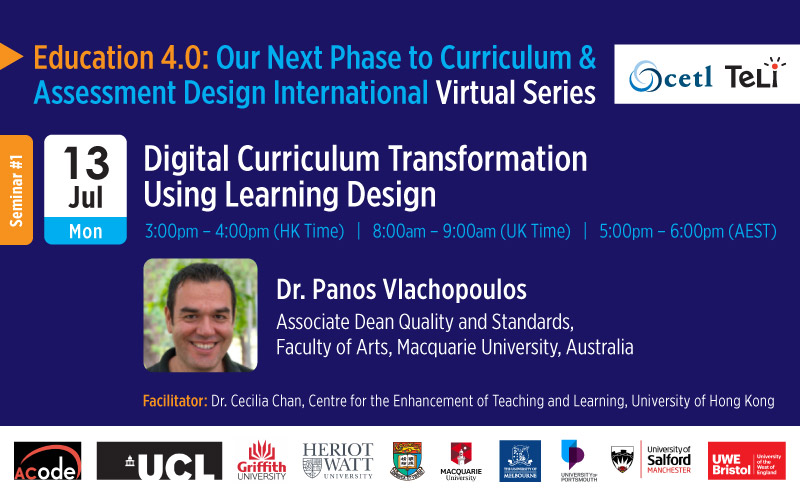
Date & Time : 13 July 2020 (Mon)
3:00pm – 4:00pm (HK Time)
8:00am – 9:00am (UK Time)
5:00pm – 6:00pm (AEST)
Venue : Conducted via Zoom
Speaker : Dr. Panos Vlachopoulos, Associate Dean Quality and Standards, Associate Professor, Faculty of Arts, Macquarie University, Australia
Facilitator : Dr. Cecilia Chan, Centre for the Enhancement of Teaching and Learning, University of Hong Kong
Abstract
In complex organizations like universities, the ways in which faculties and disciplines integrate technology into their curricula is far from consistent, with the quality of the outcomes varying considerably. The reasons for this include the diverse learning and teaching needs in faculties, the variety of pedagogical traditions in disciplines, and also the lack of accessible learning design processes for academic and professional staff. This raises significant challenges but also offers opportunities to review existing practices to inform future developments using design patterns for learning with technology as a lever. The aim of this workshop is to introduce a learning design process, namely the Design, Develop, Implement (DDI), which supports curriculum development at program level underpinned by design thinking principle. The workshop will outline the key steps of the DDI methodology and how it has been applied to embed digital skills in courses in the Faculty of Arts and the Faculties of Medicine, Health and Human Sciences at Macquarie University.
About the speaker
|
Associate Professor Panos Vlachopoulos is Associate Dean, Quality and Standards, Faculty of Arts at Macquarie University. Panos is an academic educator with over 15 years of international experience in the area of Higher Education Development and Leadership. He has led large-scale curriculum development projects in the UK, New Zealand, Hong Kong, Greece and Australia. He developed a learning design methodology for team-based curriculum design, a framework for reflection in professional learning and has taught for numerous years in areas of Technology-Enhanced Learning and Teaching. Panos is a member of numerous professional organisations and a reviewer for journals in technology-enhanced learning and higher education studies. Some of his recent work scholarly work include research in online design for intensive delivery of courses (Vlachopoulos et al, 2019) and a critical analysis of learning design frameworks (Bower & Vlachopoulos, 2018). |
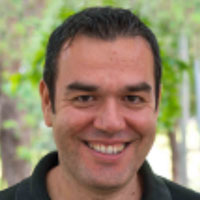 |
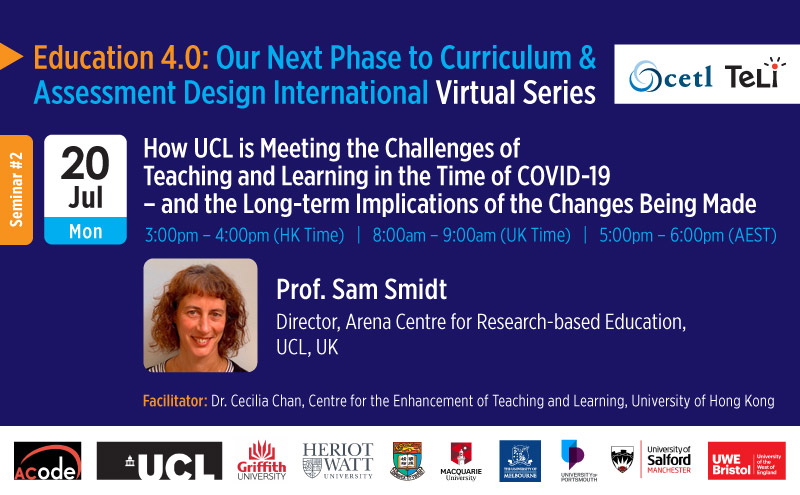
Date & Time : 20 July 2020 (Mon)
3:00pm – 4:00pm (HK Time)
8:00am – 9:00am (UK Time)
5:00pm – 6:00pm (AEST)
Venue : Conducted via Zoom
Speaker : Prof. Sam Smidt, Director, Arena Centre for Research-based Education, UCL, UK
Facilitator : Dr. Cecilia Chan, Centre for the Enhancement of Teaching and Learning, University of Hong Kong
Abstract
This talk will explore the developing response to COVID-19 at UCL. Since the sudden move to online teaching that occurred in March 2020 in the UK, UCL has implemented a phased approach to the introduction of online learning and teaching. Beginning with the emergency ‘pivot’, effectively trying to recreate the face-to-face timetable and materials to an online version, the university is gradually moving towards a more sustainable, asynchronous, lower bandwidth approach to online learning with associated faculty development and an investment in infrastructure. This talk will take a chronological approach, bringing developments up to the present and discussing how UK higher education is planning for an academic year with very few certainties!
About the speaker
|
Prof. Sam Smidt is Director of the UCL Arena Centre so leads on the strategy related to educational development at UCL and on the support of academic staff in enhancing their learning and teaching practice. In the current Covid-19 situation she has been closely involved in UCL education planning for the coming academic year and leading on the creation of a staff development course to help lecturers move their teaching online. A particle physicist by background, with many years’ experience in online and distance education at the Open University, she has worked on developing and implementing learning and teaching policy. She also has several years’ experience working in international education projects, particularly in capacity building projects in Central Asia and in Bangladesh. |
 |
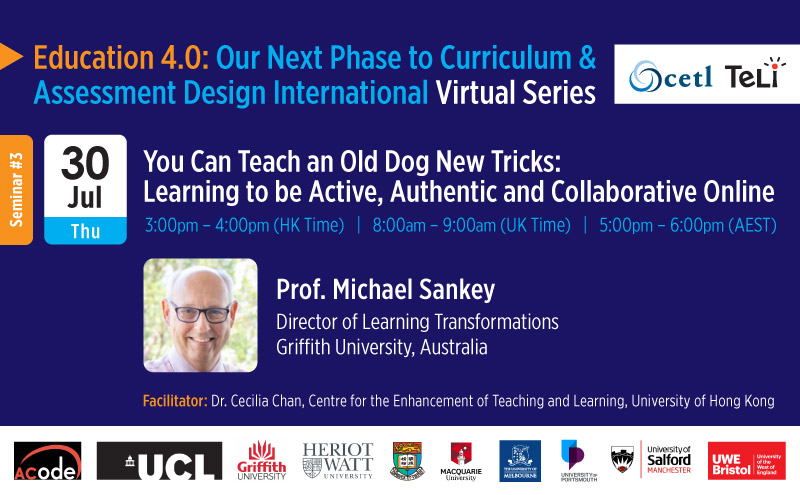
Date & Time : 30 July 2020 (Thu)
3:00pm – 4:00pm (HK Time)
8:00am – 9:00am (UK Time)
5:00pm – 6:00pm (AEST)
Venue : Conducted via Zoom
Speaker : Prof. Michael Sankey, Director of Learning Transformations, Griffith University, Australia. President of the Australasian Council on Open, Distance and e-Learning (ACODE), Director of the ACODE Learning Technologies Leadership Institute.
Facilitator : Dr. Cecilia Chan, Centre for the Enhancement of Teaching and Learning, University of Hong Kong
Abstract
Institutions that have rapidly pivoted from mainly teaching face-to face to teaching fully online have learned many lessons very quickly over the last 4-5 months. However, for others this this has been nothing new and to a great extent it’s just been business as usual. What we have seen is that those who have fared better have had well established frameworks in place to mediate their technology-enhanced learning (TEL) offerings. That is, they have recognised processes that define how they translate what they have in policy, procedures and planning into practice. Such a framework can be found within a number of TEL quality tools, that are designed to provide an institution with clear guidelines as to what things need to be in place to facilitate a robust and consistent approach to teaching with technology. Once these things are in place it makes it possible to undertake online teaching that does far more than just mimic face-to-face practice, it actually provide a robust platform to allow innovative pedagogies to thrive. Typically, this means the online learning has, or can become far more, active, authentic and collaborative.
About the speaker
|
Professor Sankey is the Director of Learning Transformations at Griffith University in Brisbane, Australia. He specialises in technology enhanced learning, staff and leadership development, curriculum renewal, online pedagogies, multimodal design, digital, visual and multiliteracies. He has worked in Higher Education for 30+ years and is particularly interested in how constructively aligned and aesthetically enhanced learning environments can better transmit concepts to students, particularly those from diverse backgrounds. In addition to this role, Michael is the President of the Australasian Council on Open, Distance and e-Learning (ACODE) and is the Director of the ACODE Learning Technologies Leadership Institute. This is a major initiative of ACODE that is run bi-yearly for those aspiring to become leaders in the area of technology enhanced learning. |
 |
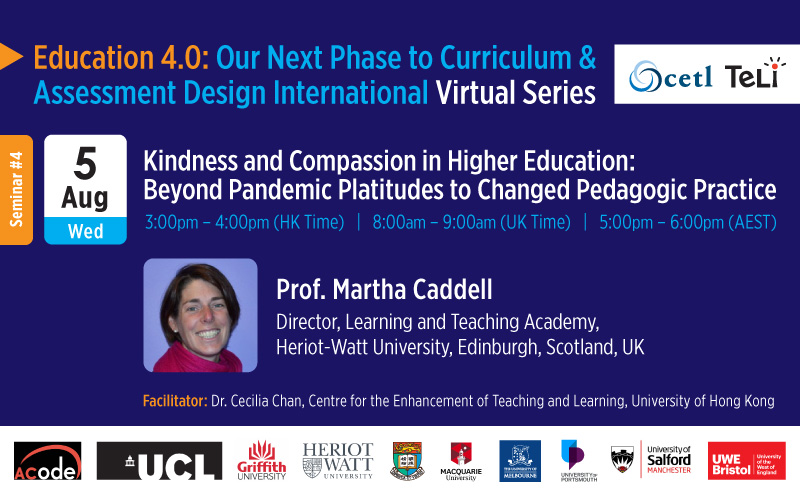
Date & Time : 5 August 2020 (Wed)
3:00pm – 4:00pm (HK Time)
8:00am – 9:00am (UK Time)
5:00pm – 6:00pm (AEST)
Venue : Conducted via Zoom
Speaker : Prof. Martha Caddell, Director, Learning and Teaching Academy, Heriot-Watt University, Edinburgh, Scotland, UK
Facilitator : Dr. Cecilia Chan, Centre for the Enhancement of Teaching and Learning, University of Hong Kong
Abstract
University responses to the Covid-19 pandemic have focused primarily on the spaces and places of learning: the ‘pivot online’, the rapid shift to remote working, learning and teaching, and the emerging pedagogic and practical conundrums around hybrid approaches to study. However, alongside the rapid changes in practice and modes of delivery, there has also been a strong narrative of care, wellbeing and kindness, particularly through those early days of disruption. Indeed, Heriot-Watt University has developed its ‘responsive blended learning’ approach on three pillars: The need to be responsive to dynamic learning environments, to disrupted learning journeys and, critically, to the wellbeing of staff and students.
Viewing the events of the last few months through a compassion lens can, perhaps, offer a potential opportunity for reimagining relationships across a range of university practices – compassion in institutional policy, compassion in teaching practice, compassion in how we frame collegiality and team-working. However, with competing priorities and institutional pressures as we approach the new academic year, ensuring that expressions of care remain authentically embedded in planning and practice will become more challenging.
This seminar will critically reflect on current institutional and pedagogic changes through the lens of compassion and kindness and consider the possibilities this could open for our post-pandemic learning and teaching practice.
About the speaker
|
Professor Martha Caddell is Director of the Learning and Teaching Academy at Heriot-Watt University in Edinburgh, Scotland. She leads on university policy and practice in learning and teaching, support for academic development, and strategically-aligned pedagogic research, scholarship and evaluation. Martha has extensive experience of online and distance education, gained through many years with The Open University. Her academic background is in the anthropology of education, with a focus on schooling and higher education in the context of political conflict and change. She is a Principal Fellow of the Higher Education Academy. Twitter @Martha_Caddell |
 |
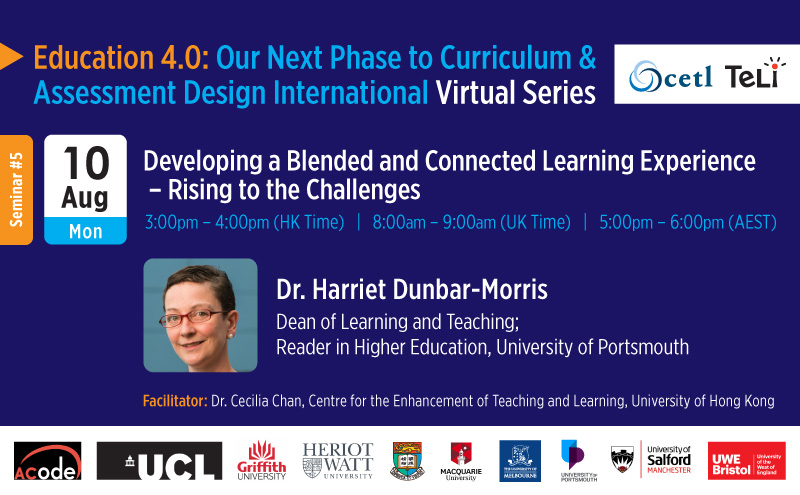
Date & Time : 10 Aug 2020 (Mon)
3:00pm – 4:00pm (HK Time)
8:00am – 9:00am (UK Time)
5:00pm – 6:00pm (AEST)
Venue : Conducted via Zoom
Speaker : Dr. Harriet Dunbar-Morris, Dean of Learning and Teaching; Reader in Higher Education
University of Portsmouth
Facilitator : Dr. Cecilia Chan, Centre for the Enhancement of Teaching and Learning, University of Hong Kong
Abstract
The session will cover how at Portsmouth we are rising to some key challenges of curriculum and assessment design for the 2020/21 academic year. For example, the challenge of delivering a blended learning experience for students which maintains a sense of belonging with both the institution and the peer group. Dr. Dunbar-Morris will also discuss supporting academic staff to develop blended course and module content which requires active student engagement and collaboration. Another challenge which will be highlighted is the need to undertake co-creation and partnership working with students beyond the 2019/20 academic year in order to prepare for teaching in autumn 2020.
About the Speaker
|
Dr. Harriet Dunbar-Morris PFHEA |
 |
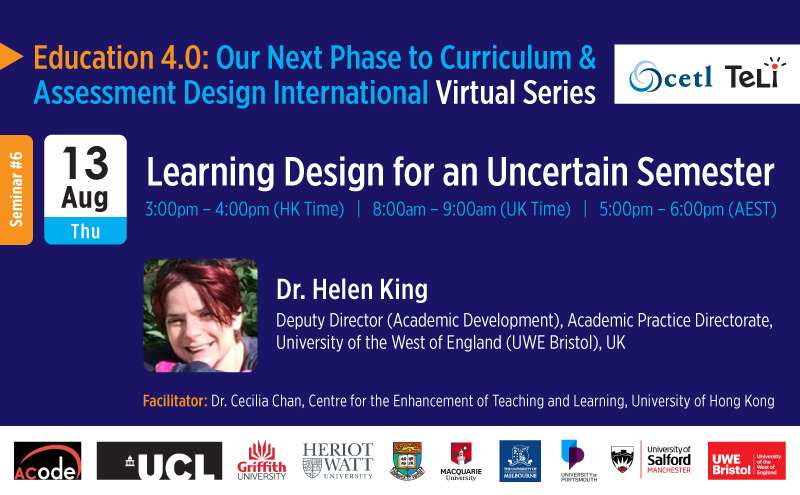
Date & Time : 13 August 2020 (Thu)
3:00pm – 4:00pm (HK Time)
8:00am – 9:00am (UK Time)
5:00pm – 6:00pm (AEST)
Venue : Conducted via Zoom
Speaker : Dr. Helen King , Deputy Director (Academic Development), Academic Practice Directorate, University of the West of England (UWE Bristol), UK;
Facilitator : Dr. Cecilia Chan, Centre for the Enhancement of Teaching and Learning, University of Hong Kong
Abstract
In the UK, planning is currently underway for the new academic year starting in September / October. In pre-Covid times, the University of the West of England’s teaching was predominantly on-campus making the most of facilities for large lectures and smaller group work, and with laboratories, studios, mock law courts, a crime scene investigation house, midwifery simulation suites and much more. Now, colleagues are having to plan for a part-on-campus and part-online learning experience, with the uncertainty of having to return to full online learning should there be a second wave of the virus or, hopefully, being able to go back to a majority-on-campus experience. For some people, conceptualising what this might look like and how they might plan their teaching is presenting a big barrier. Along with curriculum design, we are also considering how to support students new to the University to develop their study skills and build and feel part of a learning community, through either a socially distanced or online environment. This seminar will outline our approach to supporting students’ introduction to the university experience, and set out the learning design principles and model used to support colleagues in planning for an uncertain semester.
About the speaker
|
Dr. Helen King’s career in educational development spans over two decades and has included leading roles in UK-wide higher education (HE) learning and teaching projects and organisations, as an independent consultant collaborating with colleagues in the UK, USA and Australia, and institutional roles (currently Deputy Director (Academic Development) at the University of the West of England, Bristol, UK). She has interests across a range of HE themes but her particular passion is in supporting professional development. Her current research explores the characteristics of expertise in HE teachers. She holds a Senior Fellowship of the Staff & Educational Development Association (SFSEDA), a National Teaching Fellowship (NTF) and is a Principal Fellow of the Higher Education Academy (PFHEA). |
 |
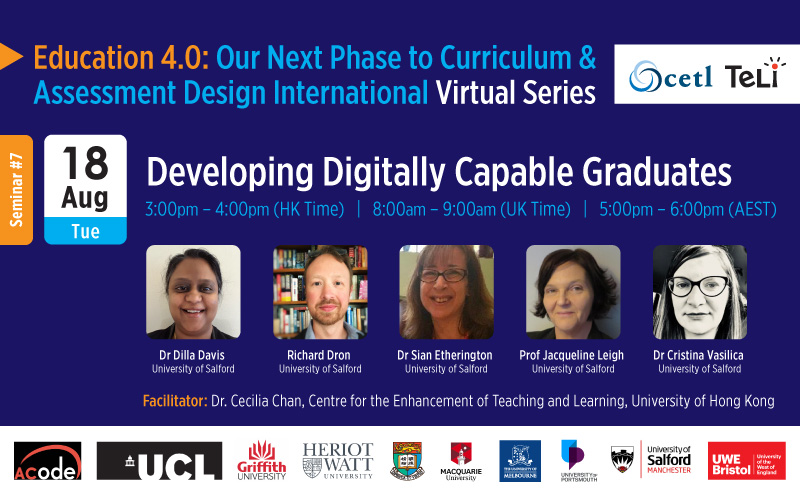
Date & Time : 18 August 2020 (Tue)
3:00pm – 4:00pm (HK Time)
8:00am – 9:00am (UK Time)
5:00pm – 6:00pm (AEST)
Venue : Conducted via Zoom
Speaker :
Dr. Dilla Davis, Lecturer in Nursing, University of Salford, UK;
Richard Dron, Lecturer in Digital Enterprise & Innovation, University of Salford, UK;
Dr. Sian Etherington, University of Salford, UK;
Prof. Jacqueline Leigh, Professor of Nurse Education Practice, School Health & Society, University of Salford, UK;
Dr. Cristina Vasilica, Researcher in Digital/Social Media in Health, University of Salford, UK;
Facilitator : Dr. Cecilia Chan, Centre for the Enhancement of Teaching and Learning, University of Hong Kong
Abstract
During the current coronavirus pandemic, undergraduate nurse teaching is facing many challenges. United Kingdom (UK) Universities have had to close their campuses, which means that academics are working from home and may be coping with unfamiliar technology to deliver the theoretical part of the undergraduate nursing curriculum. Emergency standards from the UK Nursing and Midwifery Council have allowed theoretical instruction to be replaced with distance learning, requiring nursing academics to adapt to providing a completely virtual approach to their teaching. This article provides examples of tools that can be used to deliver the theoretical component of the undergraduate nursing curriculum and ways of supporting students and colleagues in these unprecedented times. Indeed, the content of this presentation is transferable and applicable to all higher education sectors and we do draw on our collaborations between School Health & Society and Salford Business School. We provide top tips on our experience here at Salford, of using digital technologies, including which tool to use-the decision-making process; exploring the role of the lecturer as facilitator; creating the support processes for academics who are working and delivering remotely; and buddying with colleagues from technical disciplines to maximise programme delivery success.
We will use digital technologies to make this an interactive session, using for example, Padlet and Kahoot.
About the speakers
|
Dilla Davis PhD, FHEA Her PhD research focus on lifestyle changes and self-management experiences of South Asians diagnosed of cardiovascular disease. |
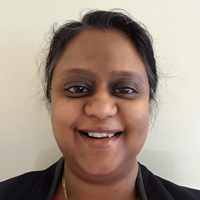 |
|
Richard Dron is a Lecturer in Digital Business at the University of Salford Business School. |
 |
|
Dr Siân Etherington is an academic developer at the University of Salford and programme leader for the Postgraduate Certificate in Academic Practice. Her research interests include the role of affect in learning and teaching. She is co-author of the recently published British Council ELTRA research report ‘‘Sticky objects’ and pathways to well-being and resilience: teacher understandings of and practices in positive psychology in their classrooms ’. (Etherington et al 2020). |
 |
|
Dr Jacqueline Leigh is a Professor of Nurse Education Practice at the University of Salford and is a Registered Nurse. Contributions made to learning and teaching positively influence the university’s activities and have national and international reach. An advocate for inter-professional, evidence- based education, teaching and learning, Jacqueline has significant experience in developing and evaluating innovative curricula that meets workforce needs in health and social care. She leads the inter-professional Educational Research and Scholarship Cluster at the University of Salford and works across Greater Manchester creating opportunities for the development of the healthcare workforce around interprofessional supervision and assessment in clinical practice. Jacqueline’s expertise in nurse education practice is recognised at the highest level receiving multiple learning and teaching awards including UK/International Advance HE Principal Fellow, National Teaching Fellow, Collaborative Award for Teaching Excellence, and multiple University of Salford Vice Chancellor Distinguished Teaching Awards. As an Executive Coach she particularly enjoys supporting individuals to learn and develop and reach their full potential. As an experienced UK NHS Leadership Academy Healthcare Leadership 360 Feedback Facilitator (individual and group), Jacqueline coaches and mentor’s senior healthcare leaders as part of the North West Leadership Academy mentoring scheme. Being on the editorial board of British Journal of Nursing Jacqueline works with Salford, Greater Manchester academics and students to publish papers demonstrating how the University of Salford and Greater Manchester Universities are continuing to provide excellent undergraduate nursing programmes, supervision and assessment. |
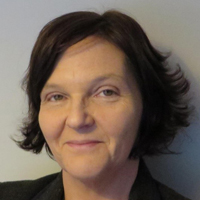 |
|
Dr Cristina Vasilica is a Lecturer in Digital Health and Society in the School of Health & Society, UoS. Her work draws on engagement and social capital theory, contributing to policy and innovation. She worked in the industry in IT service development before joining Academia. She completed a degree in Business Information Technology with Industrial Placement during which she successfully combined theoretical constructs (system design and development, usability, accessibility, marketing, project management) with practical application. Her PhD thesis looked at the impact of social media on patient information provision, networking and communication. It involved co-designing with stakeholders, implementing and evaluating the Greater Manchester Kidney Information Network (GMKIN), an online community for renal patients, for which she received an innovation award (2015) and the Big Chip Digital Awards (2018). Cristina delivered successfully on several grant projects, including francizing GMKIN to other local areas, or developing sustainable routes into the digital sector, for people managing a long-term condition facing significant barriers in re-joining the labour market (CKD-DiSk). She supported the Housing Diversity Network (HDN) to co-produce an interactive tool for housing associations to assess their standards of equality, inclusion and cohesion, benchmark against peers and share good practice. Cristina is part of the Salford Digital Methods Initiative seeking new ways of informing service provision through accessing, generating and analyzing new kinds of data on the social world (Facebook/Twitter/Instagram). She successfully utilized digital methods to identify the information needs of patients with Iga Nephropathy, and contributed to creating resources to meet their needs. Cristina has developed a local and national reputation for the ability to use digital tools to innovate services, for which she has won VC’s Research Excellence Awards 2013 for the development and application of digital technologies in health. Her work has informed policy development; reflected in work undertaken in collaboration with INVOLVE (National Institute for Health Research, 2014) to create guidance on public involvement using social media. Cristina’s most recent developments are focused on developing innovative learning approaches to create the self-determined learner, who is prepared to work and live in their digitally-enabled future. For example, she introduced the Digital Skills Passport within the nursing curricula to equip graduates with the knowledge and skills required to promote, empower and facilitate health and wellbeing with individuals, families, and communities, and enhance professional practice. It responds to current societal and political drivers that recommend an appropriate level of digital literacy training for students. |
 |
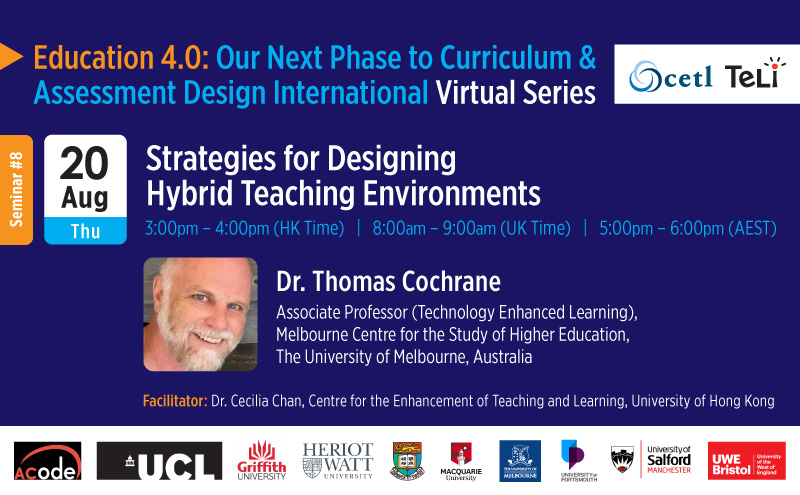
Date & Time : 20 August 2020 (Thu)
3:00pm – 4:00pm (HK Time)
8:00am – 9:00am (UK Time)
5:00pm – 6:00pm (AEST)
Venue : Conducted via Zoom
Speaker : Dr. Thomas Cochrane, Associate Professor (Technology Enhanced Learning), Melbourne Centre for the Study of Higher Education, The University of Melbourne, Australia;
Facilitator : Dr. Cecilia Chan, Centre for the Enhancement of Teaching and Learning, University of Hong Kong
Abstract
One of the main challenges we face when teaching online is how to create a sense of belonging among our students. This webinar will address the challenge of building learning communities by offering research-informed practical strategies for designing hybrid online learning environments that facilitate distributed learning communities.
Interactive media allows for the creation of new kinds of learning communities, distributed learning communities, which are not fixed in time and space. This webinar will highlight strategies, with particular reference to the use of a variety of online tools, including some free social media and institutionally supported platforms and licensed/hosted social media, that support collaborative interactions with students.
Resource links and notes at https://padlet.com/thomcochrane/ohol8ejx65fdps25
About the speaker
|
Dr. Thomas Cochrane is Associate Professor, Technology Enhanced Learning in Higher Education, in the Melbourne Centre for the Study of Higher Education. Thomas has expertise in qualitative research in technology-enhanced learning, with a focus upon action research, and design based research methodologies. His specialisations include mobile learning, designing mixed reality learning environments, heutagogy (self-regulated learning), communities of practice, and the scholarship of technology enhanced learning. His research portfolio includes over 50 peer reviewed journal articles, 32 book chapters, and over 150 conference proceedings. |
 |
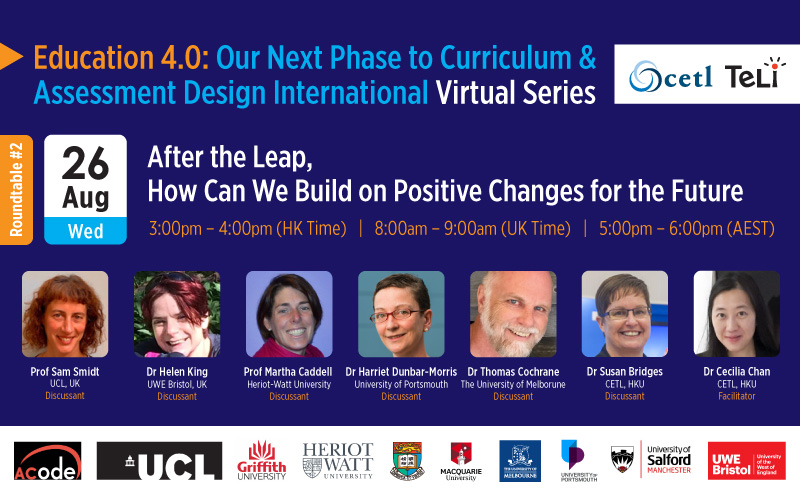
Date & Time : 26 August 2020 (Wed)
3:00pm – 4:00pm (HK Time)
8:00am – 9:00am (UK Time)
5:00pm – 6:00pm (AEST)
Venue : Conducted via Zoom
Discussants :
Prof. Sam Smidt, Director, Arena Centre for Research-based Education, UCL, UK;
Dr. Helen King , Deputy Director (Academic Development), Academic Practice Directorate, University of the West of England (UWE Bristol), UK;
Prof. Martha Caddell, Director, Learning and Teaching Academy, Heriot-Watt University, Edinburgh, Scotland, UK;
Dr. Harriet Dunbar-Morris, Dean of Learning and Teaching; Reader in Higher Education, University of Portsmouth;
Dr. Thomas Cochrane, Associate Professor (Technology Enhanced Learning), Melbourne Centre for the Study of Higher Education, The University of Melbourne, Australia;
Dr. Susan Bridges, Director, Centre for the Enhancement of Teaching and Learning, University of Hong Kong
Facilitator : Dr. Cecilia Chan, Centre for the Enhancement of Teaching and Learning, University of Hong Kong
Abstract
What will happen now?
Will we ever get used to post COVID world?
What capabilities do future teachers need?
What capabilities should be expected from students?
This round table is open to all for discussions. Please join us and we try to work out some answers together. Together we work better.













